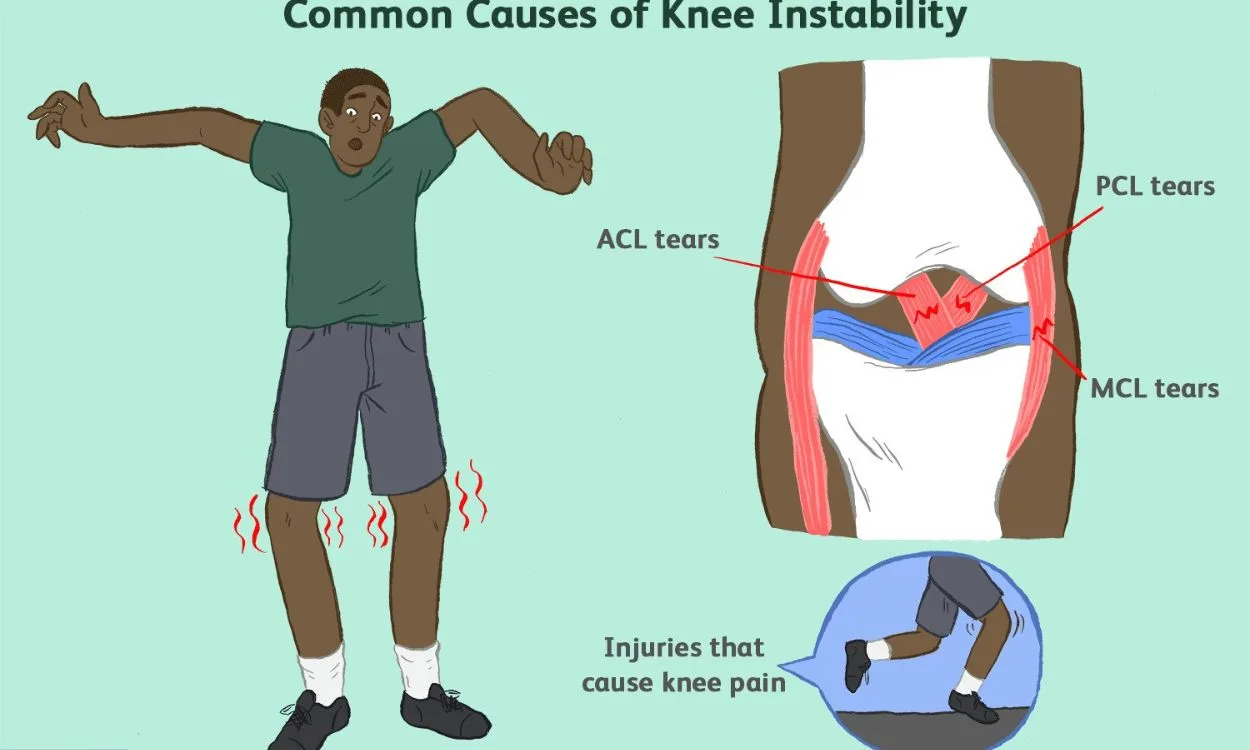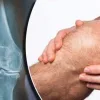Can Knee Pain Cause Instability in the Knee Joint?
Knee pain is a common issue that affects people of all ages and can have a significant impact on daily activities. One concern that individuals with knee pain often have is whether or not it can cause instability in the knee joint. In this article, we will explore the relationship between knee pain and joint instability, and provide insights on managing knee pain effectively.
Understanding Knee Pain
Before delving into the topic of knee joint instability, it is important to understand the causes and symptoms of knee pain. Knee pain can be caused by various factors, including:
- Injury: Traumatic injuries, such as ligament tears or fractures, can lead to knee pain.
- Arthritis: Osteoarthritis, rheumatoid arthritis, and other forms of arthritis can cause chronic knee pain.
- Overuse: Repetitive motions or excessive strain on the knee joint, often seen in athletes or individuals with physically demanding jobs, can result in knee pain.
- Muscle imbalances: Weakness or tightness in the muscles surrounding the knee joint can contribute to knee pain.
- Obesity: Excess weight can place additional stress on the knee joint, leading to pain and discomfort.
Symptoms of knee pain may include swelling, stiffness, limited range of motion, and aching or sharp pain in the knee area. If you experience these symptoms, it is important to consult with a healthcare professional for a proper diagnosis and treatment plan.
Knee Pain and Joint Instability
Knee pain itself does not directly cause joint instability. However, certain underlying conditions or injuries that cause knee pain can also lead to instability in the knee joint.
- Ligament Injuries: The knee joint is stabilized by four main ligaments – the anterior cruciate ligament (ACL), posterior cruciate ligament (PCL), medial collateral ligament (MCL), and lateral collateral ligament (LCL). If any of these ligaments are torn or injured, it can result in both knee pain and joint instability. Ligament injuries are often caused by sudden twists, falls, or direct blows to the knee.
- Meniscus Tears: The meniscus is a cartilage structure in the knee joint that acts as a shock absorber. When the meniscus is torn, it can cause pain, swelling, and instability in the knee joint. Meniscus tears are commonly seen in athletes or individuals who engage in activities that involve twisting or pivoting motions.
- Osteoarthritis: Osteoarthritis is a degenerative joint disease that causes the cartilage in the knee joint to wear down over time. As the cartilage deteriorates, the joint becomes less stable, leading to pain and a sensation of instability. While knee pain is often a prominent symptom of osteoarthritis, joint instability can also be experienced.
Managing Knee Pain and Instability
To effectively manage knee pain and instability, it is important to consult with a healthcare professional who can provide a proper diagnosis and recommend appropriate treatment options. Here are some common strategies for managing knee pain and improving joint stability:
- Physical Therapy: Physical therapy plays a crucial role in strengthening the muscles surrounding the knee joint and improving joint stability. A physical therapist can design a personalized exercise program to address muscle imbalances and enhance knee strength and stability.
- Medications: Over-the-counter pain relievers, such as acetaminophen or nonsteroidal anti-inflammatory drugs (NSAIDs), can help manage knee pain. In some cases, a healthcare professional may prescribe stronger pain medications or corticosteroid injections to alleviate pain and inflammation.
- Bracing: Knee braces can provide additional support to the knee joint and help stabilize it. There are various types of knee braces available, including sleeves, wraparound braces, and hinged braces. The type of brace recommended will depend on the individual’s specific needs and the severity of the instability.
- Weight Management: Maintaining a healthy weight is important for reducing stress on the knee joint. If excess weight is contributing to knee pain and instability, adopting a balanced diet and engaging in regular exercise can help manage symptoms.
It is essential to remember that the treatment plan for knee pain and instability can vary depending on the underlying cause and severity of the condition. Consulting with a healthcare professional will ensure personalized and effective management of knee pain and joint instability.
Introducing Fitpaa: Your Partner in Health and Fitness
If you are looking to achieve your health and fitness goals while effectively managing knee pain and joint instability, Fitpaa is here to help. Fitpaa is an AI-driven metabolism monitoring and management technology that can assist you on your wellness journey. With Fitpaa, you get a personalized fitness plan, nutrition guidance, and expert support to optimize your metabolism and achieve your goals.
Fitpaa uses the latest research in Lifestyle Medicine and Behavioural Therapy to strengthen all organ systems, including the musculoskeletal system. The Fitpaa Capsule, a combination of medical therapy, medical exercise therapy, medical nutrition therapy, and cognitive behavior therapy, is designed to optimize metabolism and enhance overall health and fitness.
The Fitpaa mobile app provides real-time guidance, habit-building techniques, and a virtual workout trainer to support you throughout the day. By incorporating concepts from cognitive behavioral therapy and releasing hormones like endorphins, dopamine, serotonin, and oxytocin, the Fitpaa app keeps you motivated and inspired to achieve your desired results.
Fitpaa is committed to helping individuals like you achieve their health and fitness goals with guaranteed results. Download the Fitpaa app now and embark on your journey towards a fit, healthy, and confident life. Your wellbeing is our mission, and we are here to support you every step of the way.









